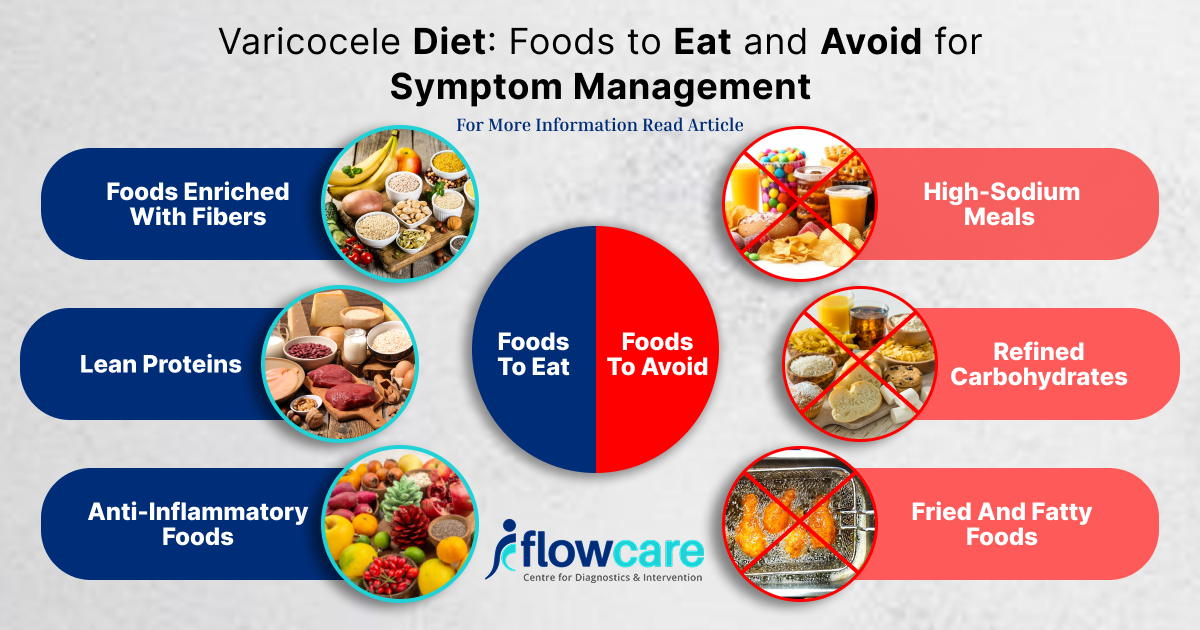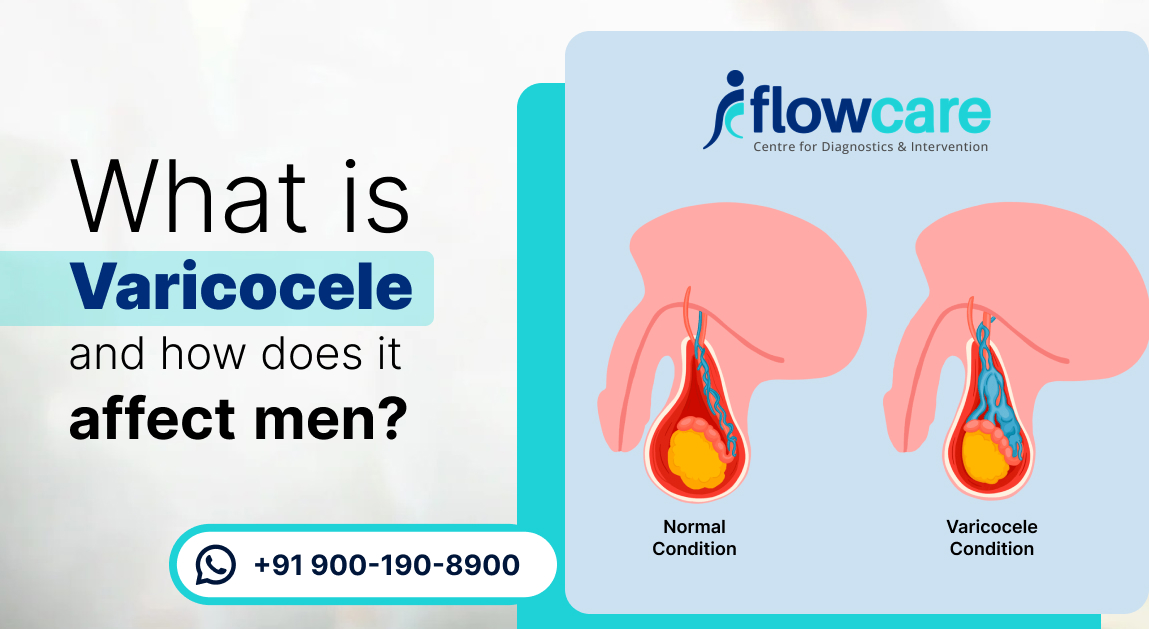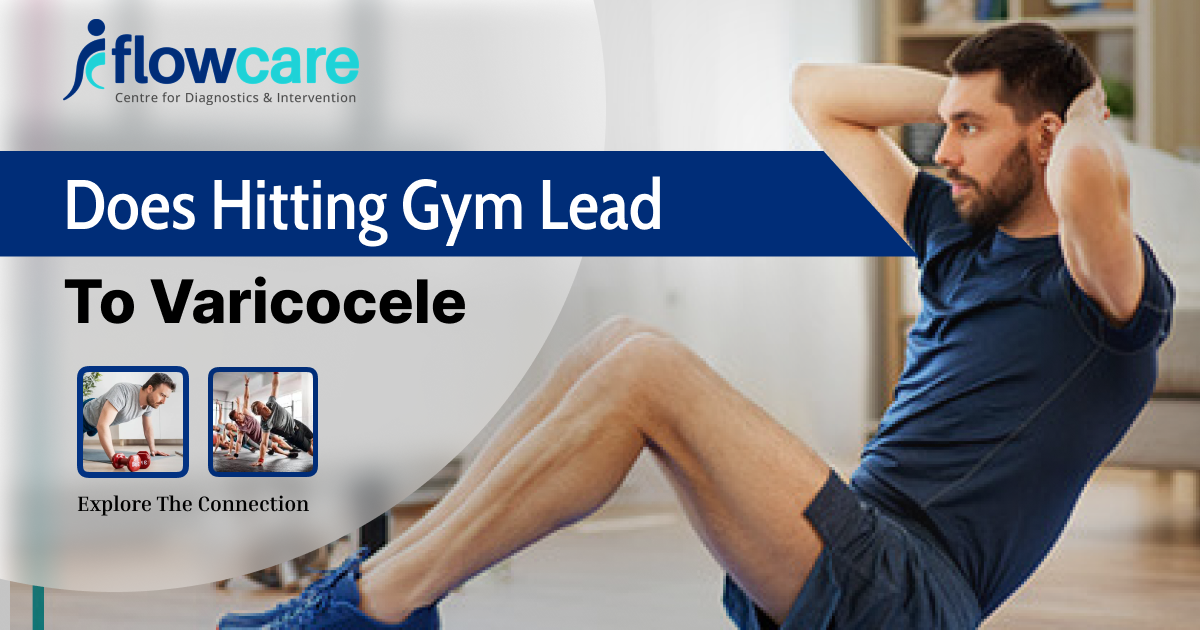
Varicocele Diet: Foods to Eat and Avoid for Symptom Management
Varicocele is a common medical condition from which thousands of people are suffering. This condition marked enlargement of the veins inside the scrotum. Due to this growth of veins, an individual could face pain, discomfort and even infertility in rare cases. Some men could witness swelling, soreness and lumps.
Also, some people get different symptoms; some people never develop any clear symptoms. When it comes to managing the symptoms of varicocele, a balanced diet plays a major role. It offers significant benefits over medical procedures like surgery and medications. Throughout the article, we’ll address the dietary routine for those with varicocele, examining what foods to consume and what to avoid to improve overall health and lessen symptoms.
Foods to Eat
An unbalanced diet and tons of stress are the two major reasons for the varicocele. Thus, besides the medical treatment, an appropriate diet would be an adequate step to manage the symptoms. Here we are discussing the foods that men with varicocele can eat to improve the condition:
Foods Enriched With Fibers
As we discussed, constipation is one of the major causes behind this issue. It is usually associated with discomfort from varicocele. But it can be eased and digestive health can be supported by including an adequate amount of high-fiber foods in your diet. To balance your diet, you can consume foods including whole grains like quinoa, oats, and barley; fruits like apples, cherries, and oranges; and vegetables like broccoli, spinach, and carrots.
Lean Proteins
Protein is another important aspect that men with varicocele should include in their diet. You can choose lean protein sources to meet your nutritional needs. It also prevents you from consuming excessive amounts of saturated fat, which can contribute to varicocele symptoms and lead to inflammation. To get the right dose of protein, your meals should contain foods like fish, tofu, skinless chicken, beans, lentils, and low-fat dairy products.
Anti-inflammatory Foods
You can reduce internal inflammation and alleviate varicocele-related discomfort by include foods rich in anti-inflammatory properties in your diet. Add heart-healthy fats like avocado, olive oil, and fatty fish that is high in omega-3 fatty acids, as well as colorful fruit like bell peppers, leafy greens, berries, cherries, and tomatoes.
Drinks That Rehydrate: Getting enough water into your body will improve your overall health and lessen the symptoms of varicocele. Aside from making sure you drink enough water throughout the day, you should consider include hydrating beverages like coconut water, freshly squeezed fruit juices, and herbal teas in your diet.
Foods Rich in Antioxidants: By protecting cells from oxidative stress and enhancing vascular health, foods rich in antioxidants may help those who suffer from varicocele. Eat a variety of foods rich in antioxidants, such as kale, spinach, nuts, seeds, berries, citrus fruits, and green tea.
Foods to Steer Clear of:
High-sodium meals
Cutting back on high-sodium meals may help reduce water retention and bloating, which can exacerbate discomfort due to varicocele. When possible, stay away from processed foods, canned soups, salty snacks, and fast food. Opt instead for natural, fresh meals.
Refined Carbohydrates
Steer clear of taking a lot of refined carbs since they might cause inflammation in the body and spike blood sugar levels. Refined carbohydrates include things like white bread, sweetened cereals, pastries, and sugar-filled beverages. Instead, choose complex carbohydrates and whole grains to help keep blood sugar levels stable.
Fried and fatty foods
Steer clear of fried and fatty foods since they may contribute to inflammation and weight gain. Fried meats, processed snacks, and oily fast meals are examples of this. Select leaner protein sources and healthier cooking methods like baking, grilling, or steaming.
Reduce the amount of alcohol and caffeinated drinks you consume, such as coffee, tea, and energy drinks, as they can exacerbate varicocele discomfort and swelling and cause dehydration. Instead, choose hydrated alternatives like herbal teas, water, and water that has been infused with fresh fruit and herbs.
Summary
A well-rounded diet that emphasizes natural, nutrient-dense foods while eliminating processed and inflammatory foods can be highly effective in treating varicocele symptoms in addition to lowering inflammation and promoting overall health and well-being. By selecting a balanced diet and eating.
habits, people with varicocele can proactively improve their health and quality of life. As it always has been, consulting with a healthcare professional for personalized dietary advice based on your particular needs and health is highly recommended. You can also consult a professional and renowned interventional radiologist like Dr. Rajendra Bansal who not only provides treatment but is also helpful with its valuable advice and guidance. You can contact him in his clinic located at Tonk Road jaipur.






